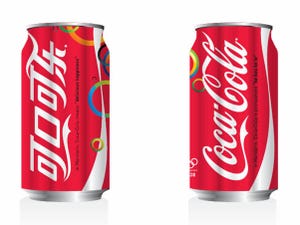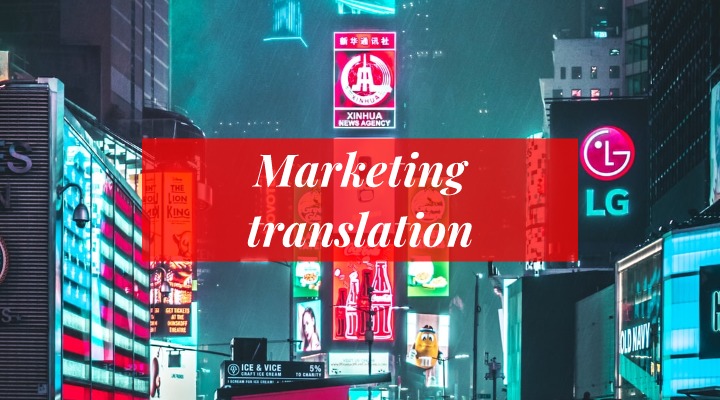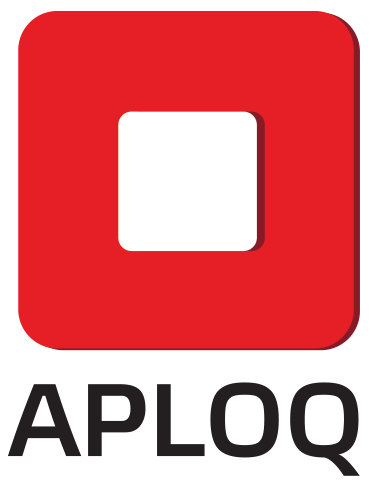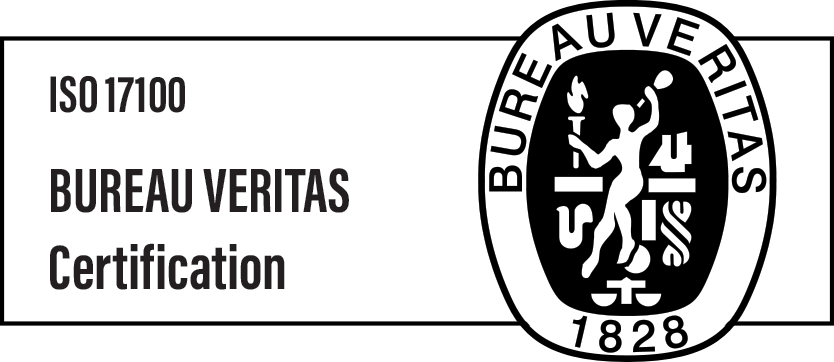Translation of marketing texts is probably one of the most commonly ordered language services. This is because there are so many different types of marketing texts and materials: that need translating, from websites and catalogues through product descriptions and online ads to slogans, claims and brand names. It’s not only a common service; it’s also quite challenging, and in this article, we are going to show you why.
In the last three articles, about medical, technical and IT translations, we told you that in these fields, accuracy and industry knowledge are absolutely fundamental. Without broad medical knowledge (and preferably experience as well), you will never be able to provide the high-quality translation service that the medical world requires. The same is true of technical and IT translations.
When it comes to marketing translation, though, it’s a whole other ballgame. Marketing translation demands versatility and a broad approach. Our clients’ primary goal is to reach their potential customers and encourage them to buy their products or order their services. So, translating these texts involves finding the perfect way to appeal to customers in their native language, which is a big responsibility. In order to fulfil this goal, several things are indispensable for the translator:
- Knowledge of the socio-cultural context in a given market/country (that’s what localisation and transcreation are all about)
- Perfect command of the target language, and
- A good dose of creativity
Transcreation is an essential part of marketing translation. So, what does transcreation entail?
Transcreation
This neologism is a combination of two words: trans(lation) and creation. And indeed, transcreation is about translating words, names and texts to create something new. Why is this service so important? Well, some names simply don’t translate well when you take your brand or product overseas. This can be particularly true when it comes to translating brand and product names, slogans and claims. Let’s examine a couple of examples:
HARIBO’S SLOGAN
The original German slogan for these sweets is ‘Haribo macht Kinder froh, und Erwachsene ebenso’, which literally translates into English as ‘Haribo makes children happy, and adults too’. But while that might seem straightforward enough, it caused many problems for translators all over the world, because it simply didn’t sound good in other languages. Translated into English literally like this, the slogan is just plain boring. So transcreators came up with a much catchier version that nevertheless captures the essence of the original: ‘Kids and grown-ups love it so, the happy world of Haribo’. And that’s the whole point of transcreation.
BRAND AND PRODUCT NAMES ON THE CHINESE MARKET
Many products that are known by the same name worldwide (Coca-Cola works in Poland and other countries as well as in the United States, for example) look and sound completely different in China. Why? First of all, there is a significant difference between the phonetic systems of Indo-European languages like English, French and Italian and the phonetic system of Chinese Mandarin. Secondly, Chinese characters are the official writing system in China, and therefore, every name has to be adjusted to it.
Let’s take a look at a few examples:[1]

- Reebok is translated as Rui bu, which means ‘quick steps’
- Nike becomes Nai ke, which means ‘enduring and persevering’
- Colgate: Gao lu jie, ‘revealing superior cleanliness’
- Marriott: Wan hao, ‘10,000 wealthy elites’
- Citibank: Hua qi yinhang, ‘star-spangled banner bank’
- Heineken: Xi li, ‘happiness power’
- Pentium: Ben teng, ‘galloping’
- BMW: Bao Ma, ‘pedigreed horse’
- Carrefour: Jia Le Fu, ‘family joyful happy’
- Avon: Ya Fang, ‘elegant fragrant’
Marketing translation services
Aploq Translations offers the whole gamut of marketing translations. The long list of types of marketing texts and materials we translate includes:
- Advertorials
- Press/TV advertisements
- Leaflets, catalogues and presentations
- Websites
- Slogans, claims and brand names
- Online ads (PPC campaigns, Facebook ads)
- SEO articles and blog posts
- Product descriptions (especially for online stores)
- Mailings and newsletters
All these materials have one thing in common: they are designed and written in order to help our clients sell more. And that’s our role as well. When it comes to marketing translation, we have to act and think like salespeople.
As we mentioned before, our primary concern and challenge is to localise the text so that it evokes positive reactions in the reader. We also have to continually bear in mind that the translated text needs to fit into a space designed originally for the source language. Leaflets and posters, in particular, have space constraints that the translated text has to stick to. This can sometimes involve considerable linguistic acrobatics to make it work!
What about online marketing? In fact, although theoretically a website can be extended, it usually shouldn’t be. When we translate websites or PPC campaigns, we have to be concise and compelling. In many instances, you have just two or three sentences – or, even worse, words – to catch the reader’s attention. And if you fail to do so, you lose money. Our role is to make the translated content sound natural, catchy and attractive to foreign customers. Of course, the source-language version is always a base for our work, but it’s our job to make the target language version at least as good as the original.
If you’re looking for marketing translations, Aploq’s team is at your service!
[1] https://www.businessinsider.com/picking-brand-names-china-2011-11?IR=T;
https://www.marketingtochina.com/10-brands-should-worship-brand-translator/


